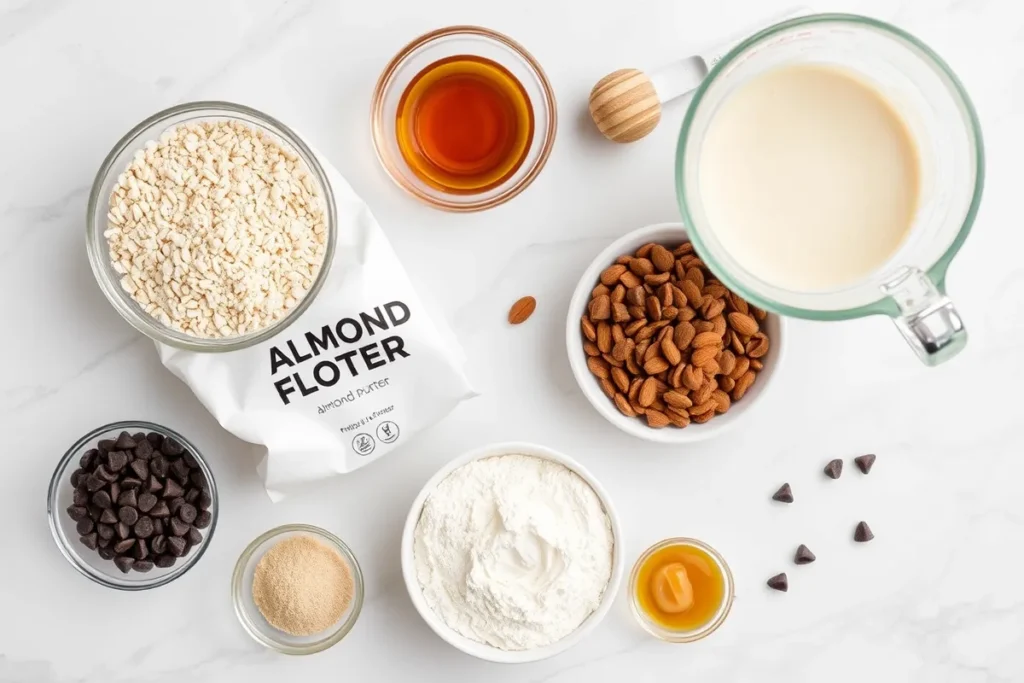Introduction
In recent years, protein cookies have become a favorite snack among health-conscious individuals seeking a balance between indulgence and nutrition. With claims of high protein content and fewer unhealthy ingredients than traditional cookies, they are often marketed as a healthier alternative.
But are protein cookies healthy? This question has sparked interest among fitness enthusiasts and casual snackers alike. Protein cookies promise to combine the satisfaction of a sweet treat with the functional benefits of added protein. However, like any processed food, their healthiness depends on the ingredients, nutritional balance, and the way they fit into an overall diet.
In this article, we’ll explore everything about protein cookies, from their nutritional profile and benefits to their potential drawbacks and tips for choosing the best options. Whether you’re looking to support muscle growth, manage your weight, or simply enjoy a healthier snack, this guide will help you make informed choices.
What Are Protein Cookies
Protein cookies are a modern twist on the traditional cookie, designed to cater to those looking for a healthier snack option. Unlike their sugary counterparts, protein cookies are formulated with higher levels of protein, often sourced from whey, pea, or soy protein. This added protein makes them an attractive choice for athletes, fitness enthusiasts, and anyone looking to boost their daily protein intake.
Ingredients in Protein Cookies
Protein cookies often contain a mix of ingredients designed to enhance their nutritional profile. Common components include:
- Protein sources: Whey protein isolate, pea protein, or egg whites.
- Alternative flours: Almond flour, oat flour, or coconut flour for gluten-free options.
- Natural sweeteners: Honey, maple syrup, or stevia to reduce refined sugar content.
- Healthy fats: Almond butter, coconut oil, or chia seeds to improve texture and nutritional value.
However, not all protein cookies are created equal. Some may include additives such as artificial flavors, preservatives, or excessive sweeteners, which can diminish their health appeal.
Varieties of Protein Cookies
Protein cookies come in many forms to suit different dietary needs and preferences:
- Vegan options: Made without dairy or eggs, often using plant-based proteins.
- Gluten-free choices: Crafted with alternative flours for those with gluten sensitivities.
- Low-sugar versions: Designed for individuals watching their sugar intake, often using natural substitutes.
By understanding their ingredients and variations, you can make better choices when selecting protein cookies. Transitioning to healthier snack options is easier when you know what to look for.
Nutritional Profile of Protein Cookies
To answer the question, are protein cookies healthy?, it is essential to examine their nutritional profile.
Macronutrient Breakdown
Protein cookies generally feature an elevated level of protein, ranging from 10 to 20 grams per serving. This protein content comes from sources like whey, soy, or pea protein, making them ideal for muscle recovery and growth.
In addition to protein, they also contain varying levels of:
- Carbohydrates: Often sourced from oats, coconut flour, or almond flour, which provide slow-releasing energy.
- Fats: Healthy fats from nuts, seeds, or coconut oil enhance flavor and satiety.
However, some protein cookies may also include added sugars or refined carbohydrates, which could offset their nutritional benefits.
Calorie Content
A typical protein cookie ranges from 200 to 400 calories per serving. While this can be higher than traditional cookies, the calorie count often includes nutrient-dense ingredients that provide sustained energy.
Added Sugars and Fiber
Some protein cookies, despite their health-focused branding, may contain hidden sugars. It is crucial to read labels to avoid those with excessive added sugars. On the other hand, many varieties include dietary fiber, which supports digestion and prolongs feelings of fullness.
Artificial Ingredients
Protein cookies sometimes rely on artificial sweeteners, preservatives, or flavor enhancers to improve taste and shelf life. While these ingredients are generally safe in moderation, opting for products with natural ingredients is a healthier choice.
Health Benefits of Protein Cookies
Protein cookies offer several advantages for individuals seeking to improve their nutrition while enjoying a tasty snack. These benefits stem from their higher protein content, balanced macronutrients, and versatility in various diets. But are protein cookies healthy enough to be considered a staple? Let’s explore their benefits in detail.
Support for Muscle Recovery and Growth
Protein is a vital nutrient for repairing and building muscle tissue, making protein cookies an excellent choice for post-workout recovery. The protein sources used in these cookies, such as whey or pea protein, provide essential amino acids needed for muscle repair. Additionally, their portability makes them a convenient on-the-go option for active individuals.
Aid in Weight Management
The protein and fiber content in many protein cookies can help with weight management by promoting satiety. Protein slows digestion, reducing hunger and curbing cravings throughout the day. For those trying to control portion sizes or calorie intake, a protein cookie can serve as a satisfying snack without leading to overindulgence.
Convenient Nutritional Boost
Protein cookies are a practical solution for people with busy schedules who struggle to meet their daily protein requirements. Unlike traditional snacks that often lack nutritional value, these cookies can provide a balanced blend of protein, carbohydrates, and fats in one convenient package.
Versatility for Special Diets
Many protein cookies are tailored to fit specific dietary preferences or restrictions, such as:
- Gluten-free: Ideal for individuals with gluten sensitivities.
- Vegan options: Made with plant-based protein for those avoiding animal products.
- Low-carb alternatives: Suitable for ketogenic or low-carb diets.
By offering these options, protein cookies cater to a wide range of nutritional needs, enhancing their appeal as a healthier snack choice.
Comparing Protein Cookies to Traditional Cookies
To understand the question, are protein cookies healthy?, it helps to compare them directly with traditional cookies. This comparison sheds light on their nutritional differences, ingredient quality, and overall impact on health.
Ingredient Quality
Protein cookies are designed with nutrition in mind, often incorporating high-protein ingredients such as whey, pea protein, or almond flour. These cookies may also use natural sweeteners like honey or stevia instead of refined sugars. Traditional cookies, on the other hand, are usually made with all-purpose flour, butter, and significant amounts of sugar, which contribute to their high calorie and low nutrient profile.
Protein cookies may also include added nutrients like fiber or omega-3-rich ingredients, offering a functional twist not typically found in traditional cookies. However, some protein cookies may still contain artificial flavors or preservatives, similar to their traditional counterparts.
Nutritional Differences
- Protein Content: Protein cookies can have 10–20 grams of protein per serving, significantly more than traditional cookies, which often have 1–2 grams.
- Calories: While protein cookies may contain more calories per serving, these calories often come from nutrient-dense ingredients like nuts or seeds, rather than empty sugars and refined fats.
- Sugar Levels: Traditional cookies are typically higher in added sugars. Protein cookies often reduce sugar content or replace it with alternatives like erythritol or stevia.
Health Implications
Protein cookies can provide sustained energy and better support for muscle maintenance due to their higher protein and fiber content. Traditional cookies, by contrast, can lead to sugar spikes and crashes, making them less suitable for people aiming to manage their weight or maintain consistent energy levels.
However, it’s important to note that not all protein cookies are superior. Those with high added sugar or artificial ingredients may not offer significant advantages over traditional cookies.
When to Choose One Over the Other
- Choose Protein Cookies: When you need a filling snack, are aiming to increase your protein intake, or want a post-workout treat.
- Choose Traditional Cookies: When you’re indulging occasionally and want a treat without concern for nutritional benefits.
By understanding these comparisons, it’s easier to determine whether protein cookies align with your health goals and lifestyle.
How to Choose Healthy Protein Cookies
To confidently answer the question, are protein cookies healthy?, knowing how to select the right product is crucial. With so many options available, it’s easy to feel overwhelmed by marketing claims and flashy packaging. Here’s how to make informed choices when purchasing protein cookies.
Read the Nutrition Label
The first step in evaluating any protein cookie is to scrutinize the nutrition label. Look for:
- Protein Content: Aim for at least 10 grams of protein per serving.
- Sugar Levels: Choose cookies with low or no added sugars. Natural sweeteners like honey or stevia are better alternatives.
- Fiber: Opt for options with at least 3 grams of fiber, which promotes digestion and satiety.
- Calories: Ensure the calorie count aligns with your dietary goals.
Check the Ingredients List
Prioritize cookies made with whole, recognizable ingredients. Avoid products containing:
- Artificial Additives: Such as synthetic sweeteners, preservatives, or flavor enhancers.
- Hydrogenated Oils: These contain unhealthy trans fats.
- Excessive Fillers: Ingredients like maltodextrin or high fructose corn syrup offer little nutritional value.
Instead, look for ingredients like oats, almond flour, chia seeds, and natural protein sources like whey or pea protein.
Look for Dietary Suitability
Depending on your dietary needs, you may want to consider:
- Vegan Options: If you avoid animal products, check for plant-based proteins.
- Gluten-Free: Ideal for those with celiac disease or gluten sensitivities.
- Low-Carb or Keto-Friendly Choices: These use ingredients like almond flour and natural sweeteners to minimize carbohydrate content.
Consider Trusted Brands
Not all protein cookies are created equal, but some brands are known for their healthier profiles. Research and read reviews to find reliable options that prioritize quality ingredients.
Balance Convenience and Budget
Protein cookies can be expensive, so weigh their benefits against their cost. While they offer convenience, you might find making your own protein cookies at home to be a more economical and customizable option.
Homemade Protein Cookie Recipes

If you’re wondering, are protein cookies healthy?, one of the best ways to ensure they are is by making them at home. Homemade protein cookies allow you to control the ingredients, customize flavors, and avoid unnecessary additives often found in store-bought versions.
Benefits of Making Protein Cookies at Home
- Ingredient Control: You can select high-quality, whole ingredients and avoid artificial additives.
- Customization: Tailor your cookies to your dietary preferences, such as gluten-free, vegan, or keto-friendly.
- Cost-Effective: Making your own protein cookies is often more budget-friendly than buying pre-packaged ones.
Simple Protein Cookie Recipe
Here’s an easy recipe to get started:
Ingredients:
- 1 cup almond flour
- 1 scoop vanilla protein powder (whey or plant-based)
- 1/4 cup natural almond butter
- 1/4 cup honey or maple syrup
- 1/4 cup dark chocolate chips (optional)
- 1 tsp vanilla extract
- 1/4 tsp baking soda
Instructions:
- Preheat your oven to 350°F (175°C) and line a baking sheet with parchment paper.
- In a bowl, mix almond flour, protein powder, and baking soda.
- Add almond butter, honey or maple syrup, and vanilla extract. Stir until well combined.
- Fold in dark chocolate chips if desired.
- Scoop dough onto the baking sheet, flatten slightly, and bake for 10–12 minutes or until golden brown.
- Let cookies cool before serving.
Customization Ideas
- For Vegan Cookies: Use plant-based protein powder and swap honey with agave syrup.
- Add Superfoods: Enhance nutrition by adding chia seeds, flaxseeds, or a sprinkle of cinnamon.
Homemade protein cookies not only taste delicious but also provide the flexibility to create a snack that perfectly aligns with your dietary needs and preferences.
Frequently Asked Questions (FAQs)
To address common concerns and further explore the question, are protein cookies healthy?, here are answers to frequently asked questions about protein cookies.
Are protein cookies suitable for weight loss?
Yes, protein cookies can be suitable for weight loss when consumed in moderation. Their higher protein and fiber content can promote satiety, reducing the likelihood of overeating. However, it’s essential to choose cookies with minimal added sugars and calorie-dense ingredients.
Can protein cookies replace protein supplements?
While protein cookies can supplement your protein intake, they should not entirely replace protein powders or whole foods like lean meats and legumes. Protein cookies often contain additional calories and ingredients that may not fit into every diet.
Are protein cookies safe for children and pregnant women?
Protein cookies can be safe for children and pregnant women if made with natural ingredients and free from artificial additives. It’s always wise to consult a healthcare provider, especially for pregnant women, to ensure the ingredients align with nutritional needs.
How often can I include protein cookies in my diet?
Protein cookies are best enjoyed as an occasional snack rather than a daily staple. Consuming them in moderation ensures they complement a balanced diet without overloading on calories or processed ingredients.
By addressing these common questions, it becomes easier to understand how protein cookies fit into various lifestyles and diets.
You Can also visit this link to see How to Make the Best Protein Cookie Recipe.
Conclusion
So, are protein cookies healthy? The answer lies in the ingredients, nutritional content, and how they fit into your overall diet. Protein cookies can be a healthier alternative to traditional cookies, offering benefits like increased protein intake, better satiety, and convenience for busy individuals.
However, not all protein cookies are created equal. Some may contain hidden sugars, artificial additives, or excessive calories, which can diminish their health benefits. To make the most of protein cookies, focus on products with wholesome ingredients or consider making your own at home for complete control over their nutritional profile.
Ultimately, protein cookies are best used as a supplementary snack rather than a primary source of nutrition. When consumed in moderation and as part of a balanced diet, they can be a delicious and functional addition to your eating plan. Whether you’re looking to support muscle recovery, manage your weight, or satisfy a sweet craving, protein cookies can serve as a guilt-free indulgence when chosen wisely.

